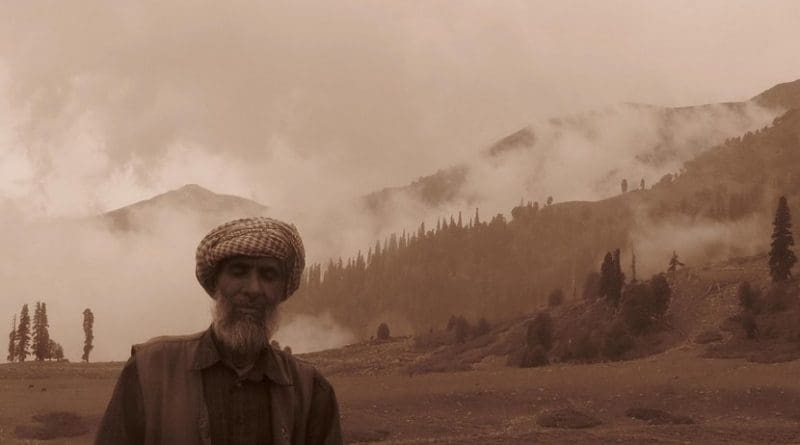Kashmir: The Calm Before The Storm – OpEd
Ever since the abrogation of Article 370, terrorist activities in Kashmir have been on a comparatively low key and though this comes as a big relief for its beleaguered people, to interpret this as a sign of Pakistan turning a new leaf by scaling down, (if not ending) its three decade old state policy of waging proxy war against India would be incorrect.
Au contraire, by openly pledging support for the secessionist lobby in Kashmir and using drones to supply extremists in Punjab with sophisticated arms and other warlike stores, the Pakistan army and ISI have made it abundantly clear that they are dead serious about Kashmir as well as expanding the proxy war arena by reviving terrorism in Punjab.
It doesn’t require rocket science to understand that there’s a very good reason behind terrorists in Kashmir presently keeping a low profile and not surprisingly it’s because of a serious development in Pakistan. Despite being given adequate time by Financial Action Task Force (FATF), which is the apex global body monitoring terror funding, Islamabad’s has not been able to satisfactorily comply with the observations on curbing terror financing that have been raised by the Asia Pacific Group (AGP), which is the FATF’s regional body. Out of the 40 observations raised, Pakistan was found “non-compliant” on five and only “partially compliant” on 25 other recommendations.
Due to its poor performance in complying with these guidelines, Islamabad runs the risk of being ‘black listed’ when the FATF meets from 13 to 18 October to consider findings of the mutual evaluation report (MER) on Pakistan that has been brought out by AGP. But since the FATF charter mentions that a country can avoid being blacklisted if it has the support of at least three member states, Islamabad may once again escape black listing thanks to China, Turkey and Malaysia. Yet, as Pakistan would not like to embarrass these countries, it is obvious that ISI has directed terrorist groups fighting in Kashmir to refrain from any large-scale action till the FATF meet is over!
Abrogation of Article 370 has derailed Islamabad’s Kashmir narrative and its attempt to undo this move through international intervention has failed miserably. The UNSC outrightly refused to entertain Islamabad’s complaint that Article 370 abrogation violated UNSC resolutions on Kashmir and it was only Beijing’s compromise formula of holding a ‘closed door’ meeting on Kashmir that served as a face saver for Pakistan.
Even at the Organisation of Islamic Cooperation (OIC) meet, expect for Turkey and Malaysia, no other member state of this 57-member strong group sided with Pakistan on the Kashmir issue. Lastly, Islamabad’s much hyped threat to take the abrogation of Article 370 issue to the International court of Justice (ICJ) proved to be a no starter.
The tremendous desperation and abject disarray that abrogation of Article 370 has caused in Pakistan can be judged by the hysterically menacing statements emanating from Islamabad and Rawalpindi. Prime Minister Imran Khan is repeatedly painting an extremely gloomy picture prophesising that revocation of Article 370 would act as a flashpoint resulting in outbreak of war between India and Pakistan, which in turn will culminate in a nuclear Armageddon.
Army chief Gen Qamar Javed Bajwa too spoke about how, “Pakistan Army firmly stands by the Kashmiris in their just struggle to the very end,” and by saying that “We are prepared and shall go to any extent to fulfill our obligations,” ended up accepting Rawalpindi’s direct role in masterminding the ongoing proxy war in Kashmir.
Khan’s UNGA address gives us a clear indication of what we can expect after the FATF meet is over and once restrictions in Kashmir are lifted. In his speech Khan had said, “Why would we ever want to disrupt peace (in Kashmir)? But it’s (New Delhi’s doing) because there is no other narrative left for India.”
This statement makes no sense whatsoever because when New Delhi is trying to show to the world that all’s well in Kashmir after Article 370 abrogation, why should it “disrupt peace” and sabotage its own Kashmir narrative. On the other hand, peace being disrupted in Kashmir suits Khan’s reflection that ” Does he (Modi) think the people of Kashmir will quietly accept the status quo?” A turbulent Kashmir will also be perfectly in line with Khan’s prediction that “What is going to happen will be a blood bath. The people will come out.”
But Khan’s crystal gazing on Kashmir isn’t mere madness and there’s definitely a method in it- that of preparing grounds for deniability of Pakistan’s own involvement in terrorist activities by using the “I told you so” refrain as a shield.
In fact, by using the UNGA podium to incite Muslims all over the world and saying, “Whatever happens (in Kashmir), we will be blamed,” he has only let the cat out of the bag and this should set alarm bells ringing for New Delhi. Having lost the diplomatic battle on Kashmir, it would be naïve to think that Islamabad will be content silently licking its wounds. Again, one doesn’t have to be a rocket scientist to deduce that in order to get its ‘K’ narrative back on tracks, Islamabad in general and Rawalpindi in particular will certainly “go to any extent” to see Kashmir go up in flames as now there is nothing for Pakistan to lose.
Let not New Delhi be lulled into complacency because what we are experiencing today in Kashmir is only the proverbial calm before the storm!


The Indian Government and its armed forces must use this opportunity to destroy once and for all the Rawalpindi establishment which seeks to subvert India by exporting terrorists.